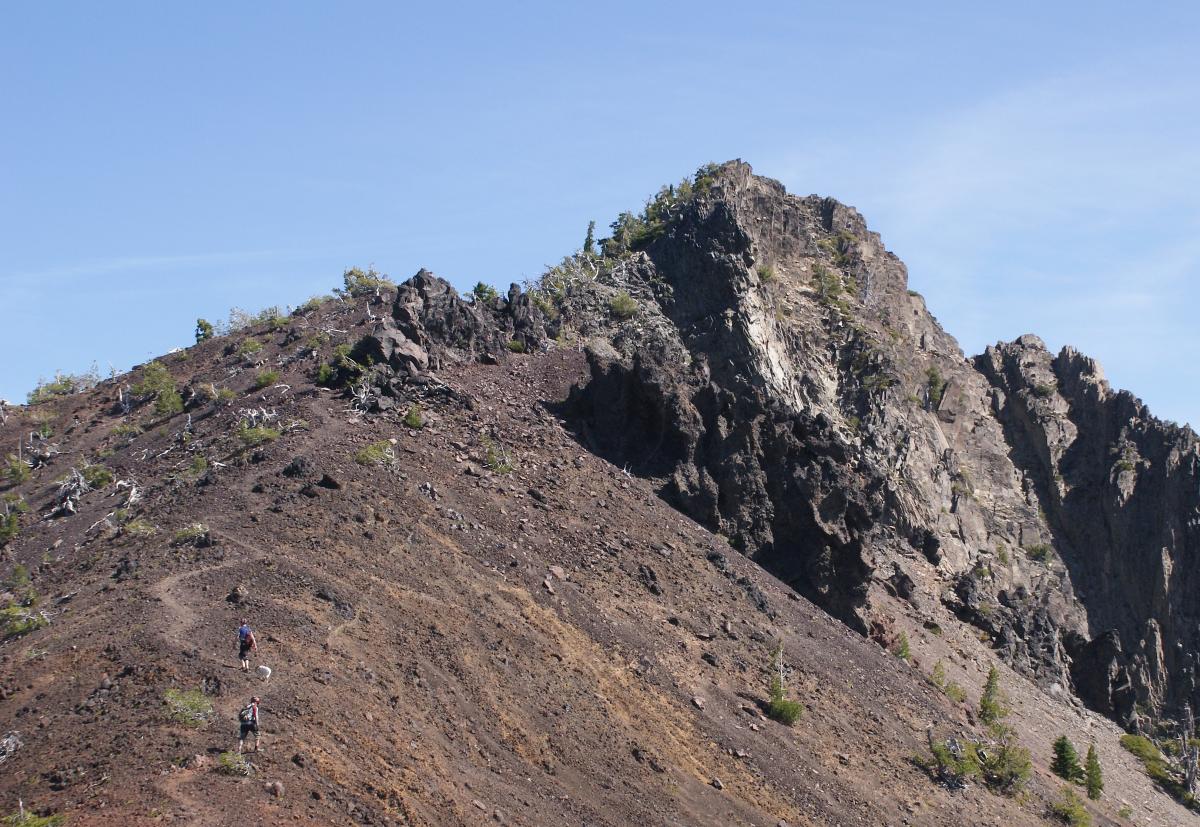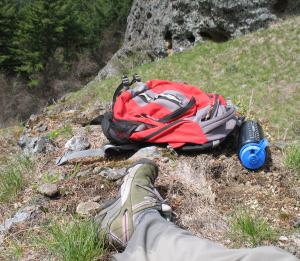Oregon Wild Hiker Information
Thank you for signing up for an Oregon Wild hike!
Your hike leader should get you additional information with specifics about a meeting time and location, difficulty level, and any other details about your hike.
Please take a moment to look over the following information which pertains to all Oregon Wild hikes and will help you have a more enjoyable experience.
Hike difficulty
Our hikes are rated by level of difficulty based on the following system:
- Easy – little elevation gain (less than 500 feet); well maintained trails; under 4 miles in distance
- Moderate – more elevation gain (up to 1000 feet); more difficult trails; 4 to 8 miles in distance
- Strenuous – significant elevation gain (over 1000 feet), over 8 miles in distance, or trail for experienced hikers only (steep, poorly maintained, bridgeless stream crossings, etc)
If you are concerned about the difficulty level of the hike you signed up for, please contact the hike leader to discuss your concerns.
Safety and liability
Our hikers' well-being is important to us, but in the end, hikers are responsible for their own safety and well-being. We strive to offer detailed information on what to expect and what to bring so that everyone is prepared for conditions that may arise. Our hike leaders have CPR and first aid training. Volunteer hike shepherds help the leader keep track of the group and provide assistance in emergencies.
Each hiker is required to sign a liability release form when they register for a hike, and to provide an emergency contact at the beginning of the hike.
Carpooling
Your hike leader will choose a central location to meet and carpool from. Carpooling is recommended but not required. If you are able and willing to drive, please come with at least half a tank of gas. If you can't or do not wish to drive, please plan to contribute between 5 and 10 cents per mile to the driver of your carpool. Directions will be provided for drivers.
What to Wear
- Dress in layers for both warm and cool temperatures.
- If it is likely to be damp/wet or cold, please do not dress in cotton or jeans.
- Good/comfortable hiking shoes or boots
- Optional and depending on conditions: Gaiters (for snowy, muddy, or dusty conditions), sun hat, change of shoes or clothes for the ride home.
What to Bring 
- A hearty lunch and snacks to get you through the day
- Plenty of water (at least 3 liters)
-
A comfortable pack
- Depending on the hike and conditions, you should consider bringing a camera, hiking sticks/poles, sunscreen, binoculars, and insect repellant.
- Any medications you regularly take or may need.
- It's always a good idea to have along, in your pack, any or all of the "10+ Essentials":
- Extra food/water/clothing
- Flashlight and extra battery/bulb
- Lighter/matches/fire starter in waterproof container
- First aid kit
- Whistle
- Pocket knife/multi-tool
- Sunglasses and sunscreen
- Map and compass (and the knowledge to use them)
- Space/emergency blanket or heavy duty garbage bags
- Toilet paper and small trowel
- Cell phone
Other Oregon Wild hike policies
- Though we love dogs, four-legged friends are not invited on Oregon Wild hikes. We do allow registered service animals (as defined by the ADA) on our hikes, but those attending with service animals must arrange for their own transportation or receive prior approval from the hike leader that they will have a ride. Thank you for your understanding.
- Drugs, alcohol, and firearms are not allowed on our hikes. Use of these items will result in you being asked to leave the hike.
- We expect all participants to create a space where everyone feels welcome on the excursion regardless of their age, sex, gender, background, or identity.
- If you decide you want to leave the group hike before the end of the trip, please notify the hike leader and sign the release form that will be provided.
What to Expect on the Hike
- This is a group hike, so everyone is in it together. The hike leader will attempt to stay at a pace that is moderate and comfortable for all hikers, while realizing that there will be different ability levels and preferences. Please be patient with the group.
- Please let the hike leader know in advance of any medical conditions it may be important that they know about.
- We ask that hikers obey basic trail etiquette and leave no trace principles - to help everyone enjoying the trail to have a pleasant experience.
- We ask that if you are a smoker, you please be sensitive to others in the group who may be sensitive to smoke and that you only smoke in paved or gravel areas.
Basic Trail Etiquette
- Pick up litter.
- Leave nothing behind – even compostables like apple cores and toilet paper.
- Do not pick flowers and plants.
- Do not create switchbacks as they increase soil erosion and unsightly multiple paths.
- Do not snowshoe in ski tracks.
- Hikers going uphill should be given the right of way over hikers coming downhill, but let them make the call. Hikers should yield to backpackers.
- Get off the trail on the downhill side when horses or other livestock approach, and speak quietly.
- Watch and listen for mountain bikers, which can move quite quickly. Bikes should generally yield to hikers, but if it makes sense in the moment, step off the trail to let bikes go by.
 '
'
